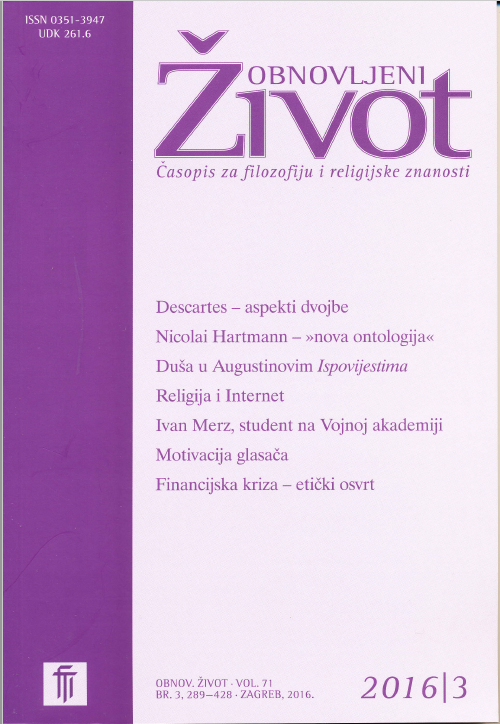Some Aspects of Doubt in Descartes’ Meditations on the First Philosophy
Keywords:
Descartes, meditations, doubt, evil genius, deceiver, God, bring into being (produce), opinion, idea, dream, madnessAbstract
In his treatise Meditations on the First Philosophy, Descartes seeks to clear the path to truth by means of doubt which extends from partial doubt, affecting the credibility of certain insights, to queries about man’s (in)capacity for reasoning as such. It pursues the ultimate limits of that which can be sensed, experienced, thought or imagined (res) and ends with the subject itself. The endeavor to pursue doubt to its limits involves the evil genius, the deceiver who, as a possibility, emerges with such inverted reasoning as to oppose notions about the goodness of God, of an omnipotent Creator who is the wellspring of truth, and which (inverted reasoning) is representative of the power of free will. It is possible to regard Descartes’ universal doubt as a reduction to nothing, »reductio ad nihilum«. Still, doubt of this kind presupposes actual existence (res existens); similarly, thoughts on creation are contained in thoughts on God and the evil genius and later are revealed in the idea of God. The objects of doubt are thus outlined, and finally doubt resolves subjectively, through »I«, to confront the very powerful and very cunning deceiver. In doing so and by looking back, »I« in its existence becomes aware of the truth of its origin. In this article we will attempt, by analyzing Descartes’ texts, to resolve whether the assumption of the deceiver contains within it assumptions as well and the nature thereof; also, who is the evil genius for Descartes, why does he need him, what is the reason for including him in his reflections, and finally, in what way do dreaming and madness relate to doubt?
Downloads
Published
Issue
Section
License
Jednom prihvaćeni članak obvezuje autora da ga ne smije objaviti drugdje bez dozvole uredništva, a i tada samo uz bilješku da je objavljen prvi put u Obnovljenom životu. Uredništvo će obavijestiti autora o prihvaćanju ili neprihvaćanju članka za objavljivanje.
Članci objavljeni u časopisu se, uz prikladno navođenje izvora, smiju besplatno koristiti u obrazovne i druge nekomercijalne svrhe.


